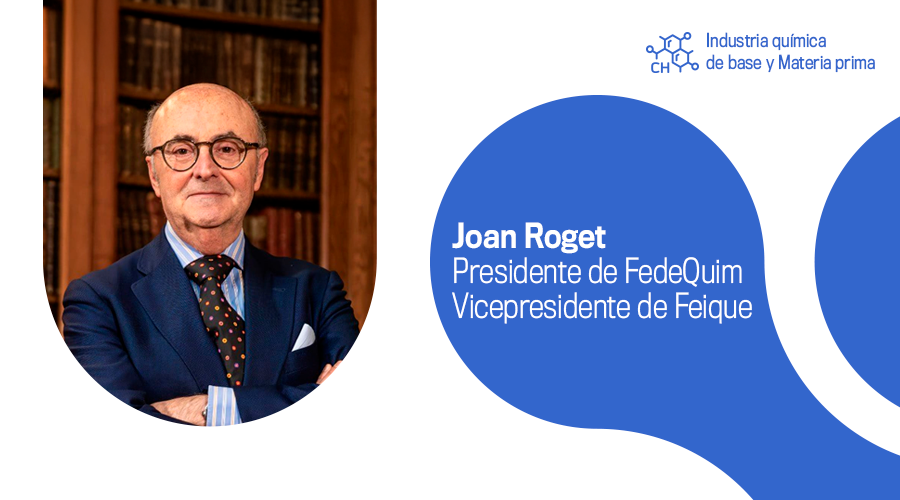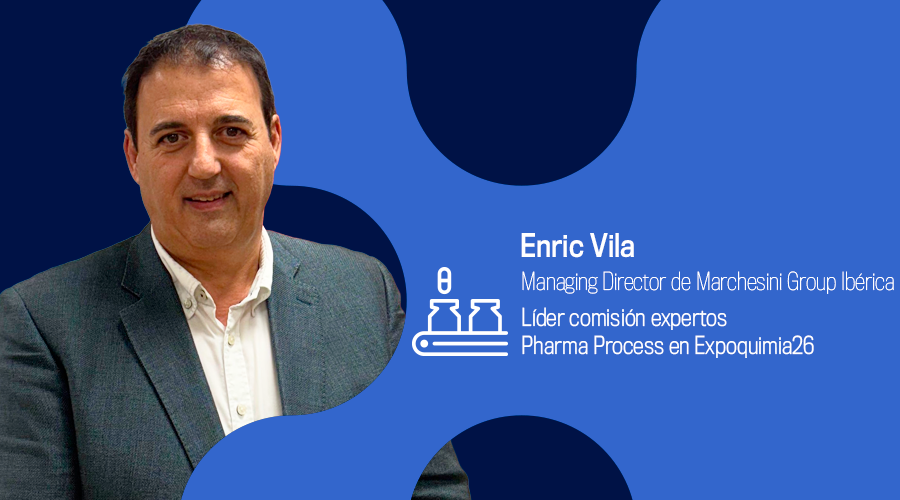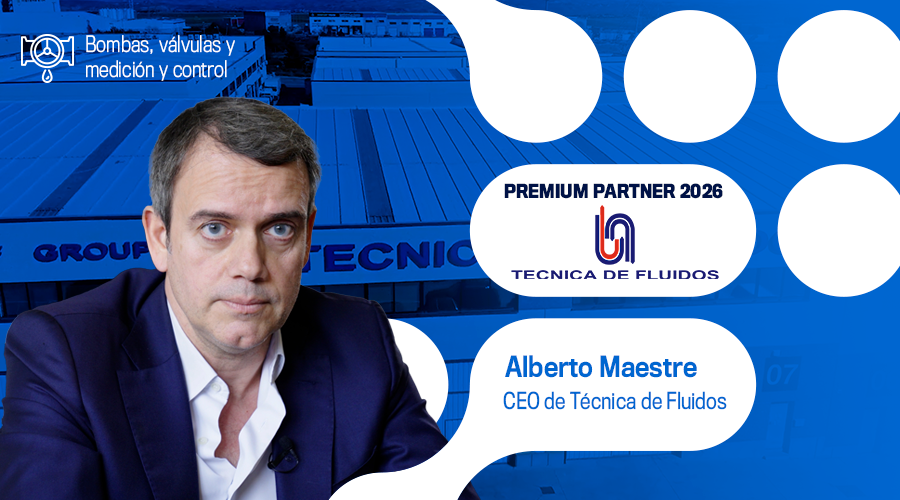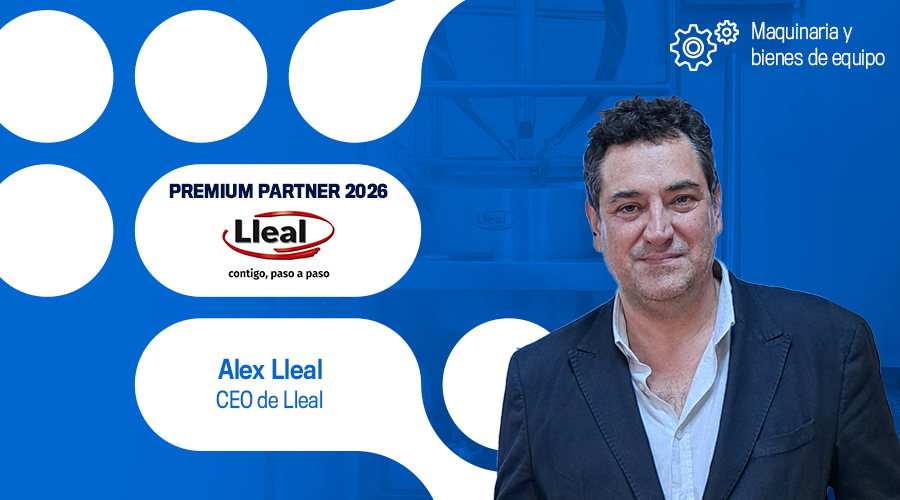Interview with Joan Roget, president of the Catalan Business Federation of the Chemical Sector (FedeQuim)
Joan Roget is president of FedeQuim and vice president of Feique, the Business Federation of the Spanish Chemical Industry. He has been a member of the Organizing Committee of Expoquimia for several editions and is also vice president of Fomento del Trabajo. Recently, he has been appointed member of the European Economic and Social Committee on behalf of Spain.
Chemistry is present in almost everything around us, but it is often not perceived. What recent developments best show this invisible but essential role of the chemical industry?
Chemicals are necessary for 98% of the country’s productive activities to function, since at some point in the value chain basic or advanced chemical substances are used. The transformation of the economy towards a circular and decarbonised model is a challenge that the chemical industry takes on as its own. Its proven capacity for technological innovation – it is the largest industrial investor in R+D+i – provides it with the necessary potential to respond to the demands for sustainability that society and markets demand today.
The UN Sustainable Development Goals for 2030 and those set by the EU within the framework of the Green Deal to achieve climate neutrality by 2050 mark an urgent horizon that requires disruptive solutions to major challenges. Technologies and materials that the chemical sector already generates can improve the efficiency of renewable energies, promote advanced energy storage systems, boost the green hydrogen economy and develop chemical processes with low or zero emissions. Materials for 3D printing and clean fuels for sustainable mobility are also included.
In the field of the circular economy, the chemical industry develops technologies capable of converting waste into substances with high added value, such as the chemical recycling of plastic waste, which prevents a large part of it from ending up incinerated or in landfills. Progress is also being made in the capture and use of CO₂ as a raw material and in technologies linked to the bioeconomy and bioproducts. Digitalisation acts as the backbone, allowing resources to be optimised, efficiency gains and risks to be minimised, which is essential to achieve a circular and decarbonised economy in a world with limited resources and a growing population.
At a time when sustainability and the green transition are setting the global agenda, how is the chemical sector responding to turn environmental challenges into new growth opportunities?
Recently, Feique presented the Roadmap for Climate Neutrality of the Spanish Chemical Industry. This document identifies the viable technological trajectories to achieve climate objectives and the necessary conditions in the short term for the energy and production transition to be sustainable, without compromising Spain’s industrial competitiveness or strategic autonomy.
Eight technology trajectories were identified: energy efficiency, electrification, renewable hydrogen, steam and heat from alternative sources, CO₂ capture and storage, and alternative carbon sources such as biomass, plastic waste, and CO₂. The combined implementation of these technologies is essential, as none of them alone can guarantee the full decarbonisation of the sector. Technological maturity, the availability of raw materials, the relative cost and the specific enabling measures will condition their deployment.
Many sectors talk about digital transformation and innovation. In the case of chemistry, what disruptive technologies do you think will mark the immediate future of production and competitiveness?
Digitalization is no longer a trend for the future; It is a reality that transforms the way of operating, innovating and relating within the chemical sector, integrating into almost all levels of decision making and operation of plants. The application of artificial intelligence, predictive analytics and digital twins is present in more than 95% of large chemical companies, especially in areas such as R+D, predictive maintenance and energy efficiency. These advances make it possible to reduce downtime, optimise resources, anticipate operational errors and improve the traceability of operations, with a positive impact on sustainability.
The combination of sensors, big data and digital modeling makes it possible to know in real time the operation of the equipment, predict incidents and simulate scenarios before implementing them. It also impacts logistics, inventories and quality control, improving integration with suppliers and customers. This transformation requires personnel with digital skills and poses challenges of interoperability, standardization and cybersecurity, but companies perceive it as an ally to be more competitive and sustainable.
As president of FedeQuim and vice-president of Feique, what is your vision of the potential and the main risks facing the chemical industry in Catalonia and Spain today?
The main risks facing the chemical industry in Spain and Catalonia are related to the need to overcome competitiveness gaps with other countries, especially in energy costs and regulatory burden. In the Roadmap we have drawn up, measures are proposed to guarantee regulatory stability, reduce administrative burdens, respect technological neutrality, activate an Industrial Decarbonisation Fund, promote contracts for carbon differences and stimulate demand for low-carbon and circular products. In addition, it is essential to preserve international competitiveness in the face of threats such as emissions offshoring, effectively coordinating the Emissions Trading System and the Carbon Border Adjustment Mechanism.
In 2026, Expoquimia will once again be the showcase for chemistry on an international scale. How important is this event for the sector?
Expoquimia represents a great opportunity to show how chemistry responds to rapid changes and global challenges. The event is not only commercial, but also acts as a strategic platform to highlight the innovation, sustainability and technological capacity of the chemical industry. The event allows for the strengthening of alliances between companies, technology centres and administrations, projecting the image of a strong Catalan and Spanish chemical industry, committed and prepared to lead the ecological transition, the circularity of materials and the development of safer and more efficient products.
How can you strengthen your representativeness thanks to the collaboration with Feique and the Smart Chemistry project?
Feique has been taking advantage of the fair for several editions to accompany chemical companies in the presentation of the numerous solutions they offer to different productive sectors and society. Chemistry is present in projects ranging from production to control, innovation, life sciences and health.
The collaboration with Feique and Smart Chemistry reinforces the representativeness and joint voice of the sector. Working together allows us to convey a unified and modern image, increases the capacity to influence institutions and society, and gives visibility to success stories, research projects and concrete examples of how chemistry contributes to economic, social and environmental progress.
What major thematic axes or trends do you think will define the next edition of Expoquimia and make it especially relevant for the industry?
The main axes will be sustainability, digitalisation and talent. The decarbonisation of processes, circular chemistry and new sustainable materials will be the common thread of the edition. Digitalisation will boost the safety, flexibility and efficiency of production processes. At the same time, the recruitment and training of qualified professionals, together with cooperation between companies, technology centres and universities, will maintain the leadership of the sector and generate added value for society as a whole.
Recently, he has joined the European Economic and Social Committee on behalf of Spain. What does this appointment mean to you and how can it contribute to giving more voice to the chemical industry in Europe?
It is an honour to represent Spanish entrepreneurs in the European Economic and Social Committee at a critical time for European industry. I will particularly ensure the implementation of the European Commission’s Action Plan for the Chemical Industry, with the aim of strengthening the resilience of production, ensuring an affordable and sustainable energy supply, promoting innovation and simplifying the regulatory framework, thus contributing to consolidating a competitive, sustainable chemical industry prepared to face global challenges.





